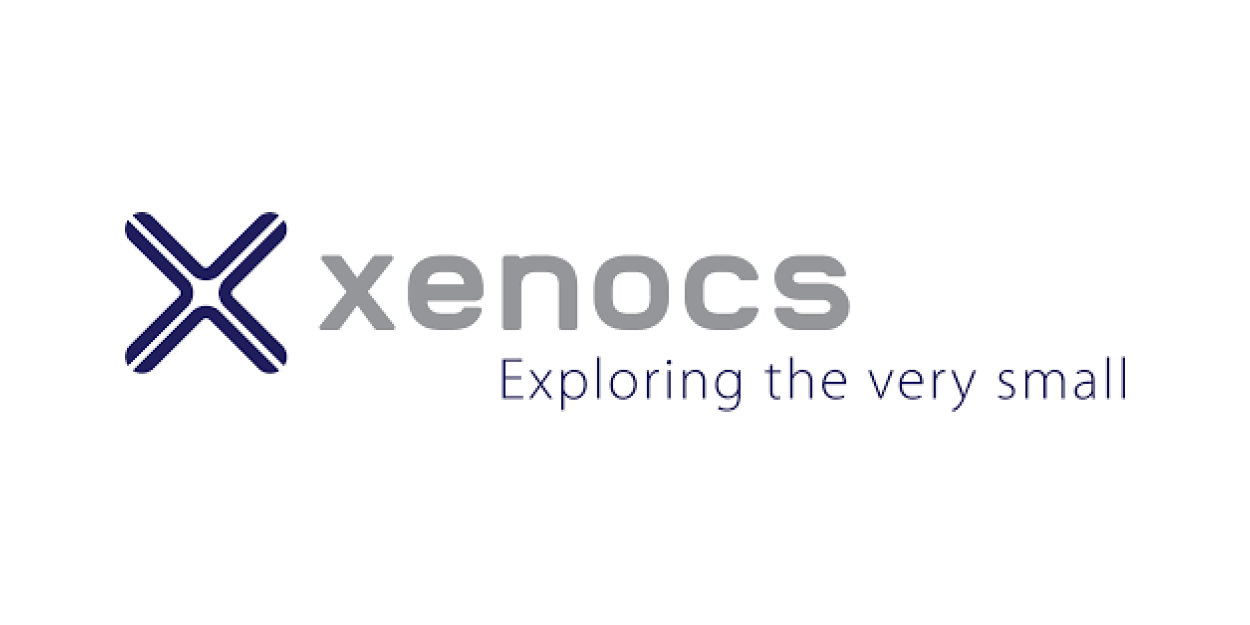
Workshops
As part of this year's ACA conference, we are thrilled to present a diverse array of workshops designed to delve into the intricacies of this fascinating scientific field. These workshops have been meticulously curated to cater to both novice and seasoned structural scientists, offering a unique opportunity to enhance skills, explore cutting-edge techniques, and engage in collaborative learning. From hands-on practical sessions to insightful discussions led by experts in the field, our workshops aim to provide a comprehensive and enriching experience for all registrants. Whether you're a researcher, student, or industry professional, these workshops are your gateway to unlocking the secrets of crystal structures and advancing your expertise in the realm of structural science. Join us for an immersive learning journey that promises to deepen your understanding and passion for this captivating discipline.
Please be advised that the schedules listed below are subject to change. We reserve the right to modify session timings, speakers, and any other aspects of the event schedule as necessary. Any alterations will be communicated promptly to all participants. Thank you for your understanding.
Workshop 1: Advanced Structure Refinement with Olex2 & NoSpherA2
Organizers: Michael Bodensteiner, Florian Kleemiss, Oleg V. Dolomanov and Ilia A. Guzei
Sunday, July 7, 2024 @ 9:00 AM MT
Olex2 is one of the most widely used software for processing single crystal diffraction data. Many features make the handling of very difficult structural features a snap, such as disorder treatment, introduction of constraints, and recently anharmonicity has also been included. One of the most revolutionary features is the introduction of non-spherical atoms in Olex2 – NoSpherA2.
This workshop aims to introduce the variety of features that Olex2 provides to establish a routine workflow for refining and handling structural problems at any level of difficulty. This includes but is not limited to, treatment of solvent molecules, disorder, fragment-based model building, and obtaining publishable files directly after refinement. After the completion of a structural determination, the capabilities and workflow of NoSpherA2 will be presented, which significantly improve the model quality and, in many cases, allow reliable refinement of hydrogen atom positions from X-ray data.
Kindly be aware that the provided schedule is provisional and may be subject to adjustments. Additionally, please note that lunch is not included as part of this workshop.
Registration Fees:
$60 USD - Student
$60 USD - Regular, Retired, PostDoc and Corporate Members
WK1 Sponsors
Workshop 2: Applications of Small Angle Scattering to Structural Biology: An Introduction
Organizers: Kushol Gupta, Michal Hammel, Jesse Hopkins
Sunday, July 7, 2024 @ 8:00 AM - 5:30 PM MT
Small angle X-ray and neutron scattering (SAXS/SANS, or SAS) has experienced dramatic growth within the structural biology community over the past fifteen years, emerging as an important and versatile analytical technique for the study of the structure and function of biological macromolecules in solution. This workshop will introduce both the theory of the method and best practices common to the field and will include lectures and a selection of hands-on practical exercises. Throughout the workshop the emphasis will be on practical application: knowing how to judge data quality, how to troubleshoot during data collection, and the expectations for a successful experiment and acceptable publication. Students will also learn about aspects of home laboratory data collection and important complementary biophysical techniques for validating your SAS data.
Workshop topics include:
• Basic principles of SAS
• Critical sample preparation and data collection procedures, including SEC-SAXS
• Basic data processing including size (Rg, Dmax), molecular weight, the P(r) function, and real space reconstructions
• Overview of ensemble and atomistic modeling
• Evaluating data quality and hands-on tutorials with data processing software
• What you need to know for publication
Kindly be aware that the provided schedule is provisional and may be subject to adjustments. Additionally, lunch is included as part of the registration fee for this workshop.
Registration Fees:
$75 USD - Student
$150 USD - Regular, Retired, PostDoc and Corporate Members
WK2 Sponsors
Workshop 3: Hands-on CryoEM Sample Preparation &Data Collection Workshop Using CryoEM Merit Badges
Organizers: Ed Eng & Craig Yoshioka
Sunday, July 7, 2024 @ 8:30 AM - 4:30 PM MT
Cryo-electron microscopy (cryoEM) is a technology that enables biomedical researchers to determine high-resolution, three-dimensional structures of macromolecular complexes or cells. New cryoEM instrumentation is being installed in research institutions and there is a growing need to learn and share the best practices available in the field. This workshop, which will be held on Sunday, July 7, 2024, will focus on cryoEM educational resources available to researchers and to provide hands-on training with cryoEM instrumentation.
The NIH sponsored Transformative High-Resolution CryoEM Program offers a comprehensive cryoEM curriculum that familiarizes new users with cryoEM equipment and workflows. Lectures and practicals will focus on how to use the national cryoEM service centers, media-rich curriculum to augment users’ own hands-on training, and hands-on use of cryoEM instrumentation using cryoEM merit badges. CryoEM proficiency badges are awarded to users in three main skill areas (Sample preparation, Microscope operations and Data processing). Students of this workshop will get “hands-on” training in all aspects of the cryoEM workflow. In particular, students will be able to demo vitrification instrumentation for the “Sample preparation” practicals, the national service centers will provide remote control of cryo-transmission electron microscopes (TEM) for the “Microscope operations” practicals, and cryoEDU will demonstrate SPA processing for the “Data processing” practicals. This workshop will benefit those who want to use cryoEM instrumentation at national service centers, or who may be new to cryoEM workflows.
Kindly be aware that the provided schedule is provisional and may be subject to adjustments. Additionally, lunch is included as part of the registration fee for this workshop.
Registration Fees:
$75 USD - Student
$150 USD - Regular, Retired, PostDoc and Corporate Members
WK3 Sponsors
Workshop 4: Simple & Advanced Single Crystal X-Ray Structure Refinement Using ShelXle
Organizers: Matthias Zeller & Christian B. Hübschle
Sunday, July 7, 2024 @ 9:00 AM - 4:00 PM MT
Instructors:
Ashley (Weiland) Schmidt (Bruker AXS LLC, Madison, WI)
Christian B. Hübschle (Bruker AXS GmbH, Karlsruhe, Germany)
Michael Ruf (Bruker AXS LLC, Madison, WI)
Matthias Zeller (Purdue University, West Lafayette, IN)
ShelXle [1] is a graphical user interface for SHELXL [2], currently worldwide the most widely used program for small-molecule structure refinement, downloaded more than 80,000 times since its first release in 2011. ShelXle is fully compatible with all features of SHELXL and is written entirely in C++ using the Qt5/Qt6 libraries. It is available at no cost for Windows, Linux and Mac-OS X and as source code.
ShelXle combines an editor with syntax highlighting for the SHELXL-associated .ins (input) and .res (output) files with an interactive graphical display for visualization of a three-dimensional structure including high resolution the electron density (Fo) and difference density (Fo-Fc) maps. Editor (res file) and the graphical interface open at the same time, with instant simultaneous updating when making changes in either text or graphical editor. Special features of ShelXle include intuitive atom (re-)naming, support of PART and RESI commands as well as suffixes during atom renaming, unique and unrivaled structure visualization and highlighting tools, a symmetry manager supporting both EQIV and CIF style codes, as well as novel and unique ways of displaying disorder around both general and special positions. The DSR [3, 4] plugin can be of great help for modeling of complicated disorder. An intuitive hydrogen placement tool, atom sorting features, automatic unit cell content updating and removal of unused structure factors, and iterative weighting scheme optimization, tools for neutron, micro-ED and synchrotron data refinement and the ability to directly add or link additional external programs round out the capabilities of ShelXle.
In the workshop, attendees will go through worked examples that focus on both simple as well as advanced single crystal structure refinement using ShelXle. Topics will include the use of symmetry tools and difference density maps, structure visualization tools and disorder refinement, both with and without use of the DSR plugin. Attendees will be introduced to an easy-to-use interface to SHELXL and have a chance to discuss specific SHELXL or ShelXle related questions and/or problems.
[1] C. B. Hübschle, G. M. Sheldrick and B. Dittrich, (2011) J. Appl. Cryst. 44, 1281-1284.
[2] G. M. Sheldrick, (2008). Acta Cryst. A64, 112-122.
[3] D. Kratzert, I. Krossing, (2018) J. Appl. Cryst. 51, 928-934.
[4] D. Kratzert, J. J. Holstein, I. Krossing, (2015) J. Appl. Cryst. 48, 933-938.
Kindly be aware that the provided schedule is provisional and may be subject to adjustments. Additionally, lunch is included as part of the registration fee for this workshop.
Registration Fees:
$75 USD - Student
$150 USD - Regular, Retired, PostDoc and Corporate Members
WK4 Sponsors
Workshop 5: Crystallographic & Cryo-EM Structure Solution with Phenix
Organizers: Dorothee Liebschner
Sunday, July 7, 2024 @ 8:30 AM - 5:00 PM MT
The workshop is on structure determination of biological macromolecules with the software package Phenix. The lectures and tutorials will cover key stages of structure solution: from obtaining initial atomic models given experimental data (diffraction intensities or a 3D reconstruction) to final complete, refined and validated structures. Considering cryo-EM and crystallography, the instructors will compare and contrast tools and methods available in Phenix to perform these tasks. Particular focus is on Phenix tools designed for handling predicted models (e.g. AlphaFold) for X-ray crystallography and cryo-EM. Attendees are encouraged to actively participate in the workshop by asking questions about the presentations and by following tutorial exercises. The presentations introduce the Phenix system and the core algorithms that it uses; the presentations are followed by hands-on tutorials. The workshop will conclude with a general discussion.
Kindly be aware that the provided schedule is provisional and may be subject to adjustments. Additionally, lunch is not included as part of the registration fee for this workshop.
Registration Fees:
$50 USD - Student
$125 USD - Regular, Retired, PostDoc and Corporate Members










